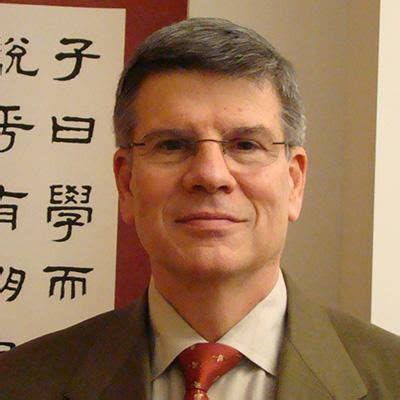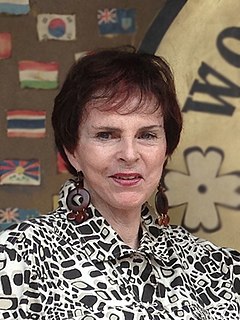A Quote by Margaret MacMillan
War is a crucial, deeply ingrained part of human history. It has to be understood.
Quote Topics
Related Quotes
As we have sought through the centuries to define ourselves as human beings and as nations through the prisms of history and literature, no small part of that effort has drawn us to the subject of war. We might even say that the humanities began with war and from war, and have remained entwined with it ever since.
We have a problem with drugs? Let's declare war on drugs! We have a problem with crime? Let's declare war on crime! We have a problem with violence? Let's declare war on violence! The deeply ingrained American attitude that we can solve any problem w/enough force creates, feeds, & rewards the epidemic of violence we are currently experiencing.
War is a great destroyer. And human history has arrived at a pivotal moment. We can choose a path built on cooperation, where our caring and sharing side uplifts us, or we can continue to embrace a worldview where domination using violence imprisons us in cycles of killing and destruction. I'm a biologist, and war is not genetically fixed. War is a cultural invention. It's time to end this abomination, and this World Beyond War movement is uniquely focused on unifying the human community to create one of the biggest revolutions in history. I'm in. Join us!
History of America, Part I (1776-1966): Declaration of Independence, Constitutional Convention, Louisiana Purchase, Civil War, Reconstruction, World War I, Great Depression, New Deal, World War II, TV, Cold war, civil-rights movement, Vietnam. History of America, Part II (1967-present): the Super Bowl era. The Super Bowl has become Main Street’s Mardi Gras.
THE LONG WALK is a raw, wrenching, blood-soaked chronicle of the human cost of war. Brian Castner, the leader of a military bomb disposal team, recounts his deployment to Iraq with unflinching candor, and in the process exposes crucial truths not only about this particular conflict, but also about war throughout history. Castner's memoir brings to mind Erich Maria Remarque's masterpiece, All Quiet on the Western Front.
The human face is the most deeply ingrained image in our brains. It is the two dots and a dash we connect with as babies. It is the focus of our attention in our relationships with each other. The face and the human figure express all we are. Everything else - architecture, art, even landscape - we usually understand in relation to us.
If you're deeply engaged in an event, you're part of it. But if you're outside of it, disinterested, you are the regard that registers history. And that disinterestedness is different from objectivity. The objective view sees only the event, while the disinterested one participates as well as views by creating that link to history. It's a type of viewing that's both inside and out of the event, that brings to the viewing the capacity for human emotion, for compassion, but holds it openly. And objectivity excludes the human element, and is therefore not a point of view open to humans.
Country' and 'city' are very powerful words, and this is not surprising when we remember how much they seem to stand for in the experience of human communities. In English, 'country' is both a nation and a part of a 'land'; 'the country' can be the whole society or its rural area. In the long history of human settlements, this connection between the land from which directly or indirectly we all get our living and the achievements of human society has been deeply known.
As you look back in history, we [the United States] have done wonderful things, the Marshal Plan is the most obvious. After World War II, we spent billions of dollars to rebuild Europe or at least part of Europe after the devastation of World War II. We did it out of charity, but we also did it to keep the Russians from getting deeply into Europe.








































